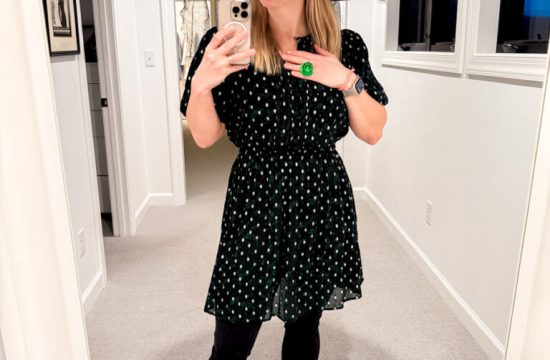
If you’ve ever left the doctor’s office with unanswered questions, or hesitated to book an appointment because you couldn’t quite find the right words to describe your issue—you’re not alone. That’s why some Canadians may choose to visit naturopathic doctors (NDs) alongside their primary healthcare provider in order to access a holistic form of healthcare which addresses their individual needs.
We talked to Dr. Chanel Smyth, ND of Creekside Health in Whistler, BC, for some insight into how these holistic health practitioners can help you.
01
If you are curious about the role of an ND

Though often confused with a naturopath, an ND is a separate profession. Unlike a naturopath, becoming an ND requires eight years of schooling: You must first obtain a bachelor’s degree with pre-med requirements and complete a four-year doctoral program accredited by the Council on Naturopathic Medical Education, followed by successful completion of standardized board exams.
As Smyth explains, the role of an ND is to “diagnose, prevent, and treat acute and chronic illness and, in some provinces, prescribe medication.” An ND can help with a multitude of needs, often working alongside medical doctors (MDs) to provide you with the best overall care they can.
02
If you are interested in a holistic approach to health care

One of the key principles of naturopathic medicine is to “treat the whole person.” This involves looking at the connections between a person’s body, environment, and lifestyle, and the impact these elements have on overall health.
“Each person is their own ecosystem that operates as an integrated whole,” explains Smyth. An ND’s aim is to come up with a treatment plant that takes this into account, integrating all factors from their medical history to their physical, mental, and emotional state.
03
If it’s been a while since your last checkup

You don’t need to wait until you have a serious health concern to schedule an appointment with an ND: One of the focuses of naturopathic medicine is preventionNDs offer general consultations and checkups “to go over nutrition, supplementation, and exercise regimes and to make adjustments where necessary and have annual blood work done,” says Dr. Smyth.
Smyth generally recommends visiting your ND twice a year for general checkups and if no further concerns arise.
04
If you are fighting cancer

If you are met with a serious health concern, an ND can be a helpful resource to aid you on your road to recovery. Upon receiving a cancer diagnosis, over 80 percent of people choose to supplement oncology treatments with natural or alternative remedies.
NDs can help reduce side effects, combat pain, support the immune system, and improve overall quality of life while you undergo cancer treatment.
05
If you’re struggling to get pregnant

An ND can provide a full assessment of both partners to identify the root cause of the fertility issue, “whether it be an underlying condition that has not been previously identified or addressed, or a nutrient or hormone imbalance,” says Smyth. NDs can assess for the levels in a variety of hormones such as progesterone, estrogen, AMH and thyroid hormones, and conduct urine analysis as needed.
From there, your ND can help you find solutions to these issues, offering recommendations tailored specifically to you in order to improve fertility through methods like acupuncture or overall lifestyle and nutritional changes.
06
If you are pregnant

Smyth explains that your ND can be there for you throughout your entire pregnancy journey, offering support for concerns like morning sickness and digestive disturbances for mom, and nutrient needs and overall health for baby.
One of the roles of an ND is “doctor as teacher,” educating patients on their health rather than simply solving the problem. Having an ND by your side during pregnancy to educate you on the health of both you and your baby can provide comfort as you head into motherhood.
07
If you are looking for healthcare for your kids

Even if you already have a trusted MD for your child, NDs can work alongside traditional practitioners to provide support and alternative forms of care.
“We work with both parents and children and approach any necessary testing, diet and lifestyle changes and appropriate nutrients to address a given concern,” says Smyth. This can include a variety of areas such as skin issues, allergies, and mood imbalances.
08
If you need mental health support

From feeling down or overwhelmed, to struggling with more serious mental health concerns, our own emotional health impacts us all on the day to day. Utilizing naturopathic care can assist with mental health concerns and has been shown to help with issues like depression and anxiety.
Smyth explains that NDs take a holistic approach to mental health by first searching for the source of the mental health concern. From there they will use various methods such as testing when needed, diet and lifestyle adjustments, herbal medicine, and more to help address the issue.











